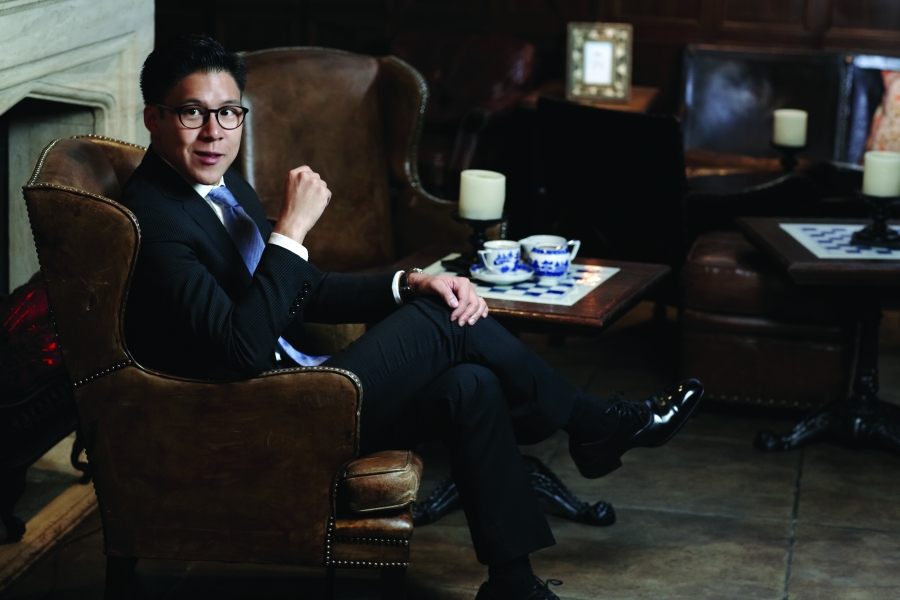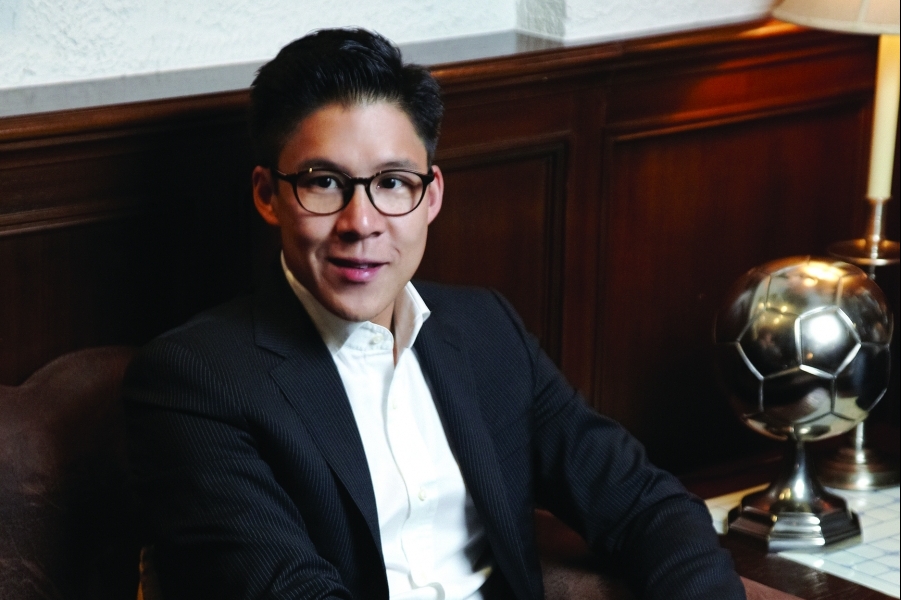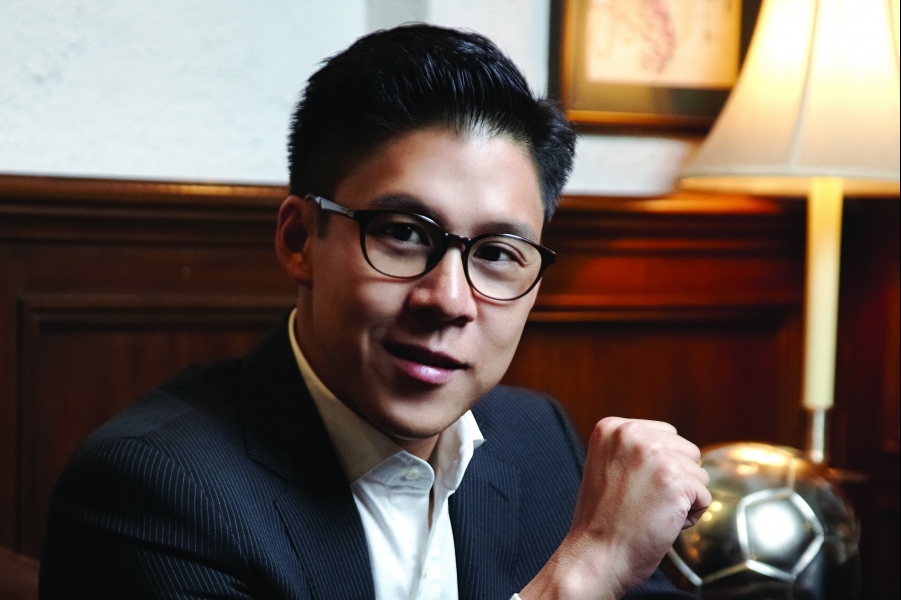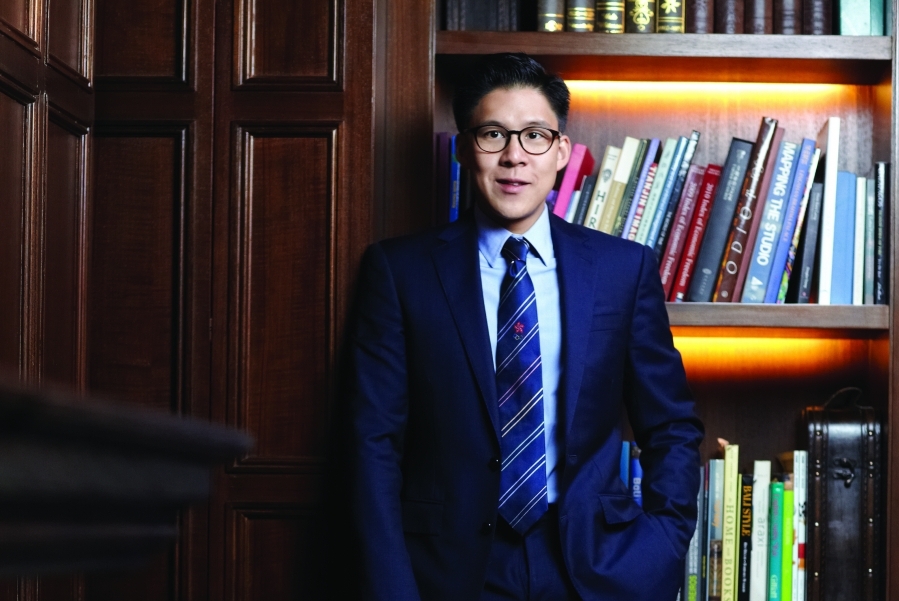
Kenneth Fok is the vice-president of the Fok Ying Tung Group and the honorary deputy secretary-general of Hong Kong’s Sports Federation and Olympic Committee.
What can you tell of your role as the vice-president of the Fok Ying Tung Group?
My work is mostly focused on the Nansha district of Guangzhou. My involvement stems from my grandfather, as it was his ancestral home. Over the past 20 years, he and my father – Timothy Fok – have put a great deal of effort it into developing the area.
It’s not property development in the accepted sense, it’s really been about more working on designs for the new look of the city. There is quite a lot of vacant land, so – as well as developing residential properties, we are also involved with a lot of the recreational facilities. This means, over the past five years, we’ve run a golf course, a hotel and a yacht club.
In the case of the yacht club, we didn’t have to just build the facility. We also had to nurture the lifestyle that surrounds it. This saw us launch a sailing school, encouraging children to take to the water for the first time.
That’s really where I fit in – looking to the future, planning what we do next, while also managing day-to-day operations.
What is the most challenging aspect of your role?
That is probably adjusting to China’s unique business culture. As I said, I am very involved with planning for the future and one of my key challenges is to try and persuade government officials to accept our ideas. We sometimes try to bring in a more radical, city plan, which might not fit in with their own ideas.
I was educated in the UK, spending 12 years there in all, getting to known many of its more charming towns. Later, I discovered the French way of life, then the Italian way of life. None of that matters to the average Chinese government official, though. They always want a glass building or a tall mega-structure.

If you say: ‘Hey this is not the future. There are a lot of problems with modern cities – pollution, congestion… Can we try to look at things a different way?’, it is far from easy to convince them. That is the hardest thing, not the nuts and bolts of building design. The most challenging is always trying to convey a new idea to someone, something they might never have considered before.
Why limit your ambitions to Nansha?
It’s where we’re from, so there’s a very real feeling of connection, something that’s very important to my family. In China, people are always aware of their roots.
Aside from that, of course, there is the area’s geographical significance. It was once on the very perimeter of Guangzhou, at the time when the city was still seen as the capital of of the south. As it was removed from the centre of things, it was seen as less desirable – it was a place where industries disposed of their rubbish.
If you look at a map, though, it’s at the centre of the river. It’s close to Hong Kong, it’s close to Guangzhou and it’s close to Macau. Actually, it’s a gem.
It’s where the Opium Wars were fought. It’s where they burnt the opium – right across the mouth of the Pearl River. As well as its historical signifcance, it’s also very centrally situated geographically.
For us, we believe that people value space, greenery and clean air. If you look at New York or London, people don’t necessarily live in central London or in Manhattan. Similarly with Nansha, if the interconnectivity of the area is good, people will be willing to move their family out up to an hour away, but only if there are good schools, good parks, entertainment, culture and the kind of spaces they might not necessarily find in the city centre. So we’re really trying to attract the kind of people who would enjoy something of a different lifestyle in an old part of the city.
Soon, things will change again. The government is planning to build a cruise terminal in Nansha, so we will be getting a tourism centre and a commercial centre.

You recently led the Hong Kong delegation to the Rio 2016 Olympic Games. That must have been quite an experience…
It was exciting, but even before we left there had been so much negative news. The newspapers were full of stories about the Zika virus, about the city not being ready, the cycling track not ready, theft, robberies…
Despite all that, we made our way there safely and it all seemed fine. The athletes, themselves, thought it was fine too. As to the Olympic Village – despite the complaints of the Australians – it was more than acceptable. Everyone was happy.
Rio, itself was beautiful, though you did have to be sensible about where you went. You couldn’t just wander off anywhere, especially if you were wearing a gold watch. Most of the people are friendly, though, and the beaches are beautiful.
At the end of the day, the organisation was great. There were glitches, of course, but that always happens. There wasn’t anything that couldn’t be overcome. At every Olympics, be it Beijing or London or wherever, the media complains right up until the opening day. Once the results start coming, though, everyone concentrates on then rather than the flaws.
In the end, it was a pity we didn’t get a medal – especially as Singapore got a gold medal. That was a real jab in the kidney. Even though Rio was so far away, people really got behind our team. They were especially behind Sarah Lee, the cyclist. She had a crash and then, in the next race, she was holding hands with the woman that crashed into her. That really showed the Hong Kong spirit.
As well as international sport, you are also a supporter of local sport, something notably lacking in Hong Kong. Do you think much can be done to change that?
We have to start at the grass roots, with youth training and the first thing is facilities. No one can find football field to play on at the weekend. That is a huge problem and will take a long time to solve. Then there is the question of the school curriculum. We need a proper sports policy, one supported by the relevant government departments. Sport starts with the Education Bureau and then moves on to the Home Affairs Bureau. They need to generate community involvement across the city, encouraging young people to get more involved in sport.

In general, how do you feel you’ve made a difference in Hong Kong?
About two years ago, we started the Sports Legacy program. This saw us hire ex-athletes, say a rower or a fencer. We then embedded in schools in the less-privileged communities, somewhere like Tin Shui Wai. These ex-athletes act as an extra PE teacher, introducing activities that these schools would never normally offer. As a result, we’ve seen more kids playing sports. Maybe they’d never rowed or fenced before, but now they’re converts.
Before enrolling on the programme, many of these kids did not have a sense of direction, they didn’t know where their life was heading. Once they were paired with our athletes, though, it gave them a sense of direction. It introduced a touch of discipline and gave them a goal.
This is something the wider community can now get involved in through sponsorship. We need to roll this program out into more schools. The key is for people within the community and for successful companies to put resources into this through schools.
Which sport are you personally most passionate about?
I like golf. It’s an interesting mental game. You have a good hole and you’re happy, then the next hole is a disaster. It’s very much a mental challenge. It’s always been branded as an old man’s game, but I find it very challenging on a personal level. I don’t want to sound like a philosopher but it’s like life. I’ve never had 18 holes of good golf. You start well on the first nine, then it becomes a disaster by the end. That’s life, right? It teaches you the importance of managing your expectations.
What’s a typical day for you?
Well, I have a young family so the day starts early – definitely early. I get up at 7 o’clock, have breakfast with the family and then my three-year-old son has to be at school for 8 o’clock. A couple of times a week, I take him and then carry on to work.
I try to clear all of my emails before noon, followed by lunch in the office or with clients. In the afternoon, I have a lot of public service work. There’s a lot of running around, having meetings with the government and so on. There’s also sporting engagements and meetings with the Olympic Committee.
In the evening, I eat out with business partners and friends. Increasingly, though, I try and spend more a more evenings at home. Family is just so important.
Thank you



